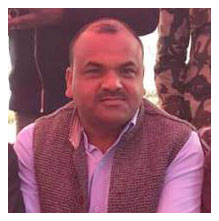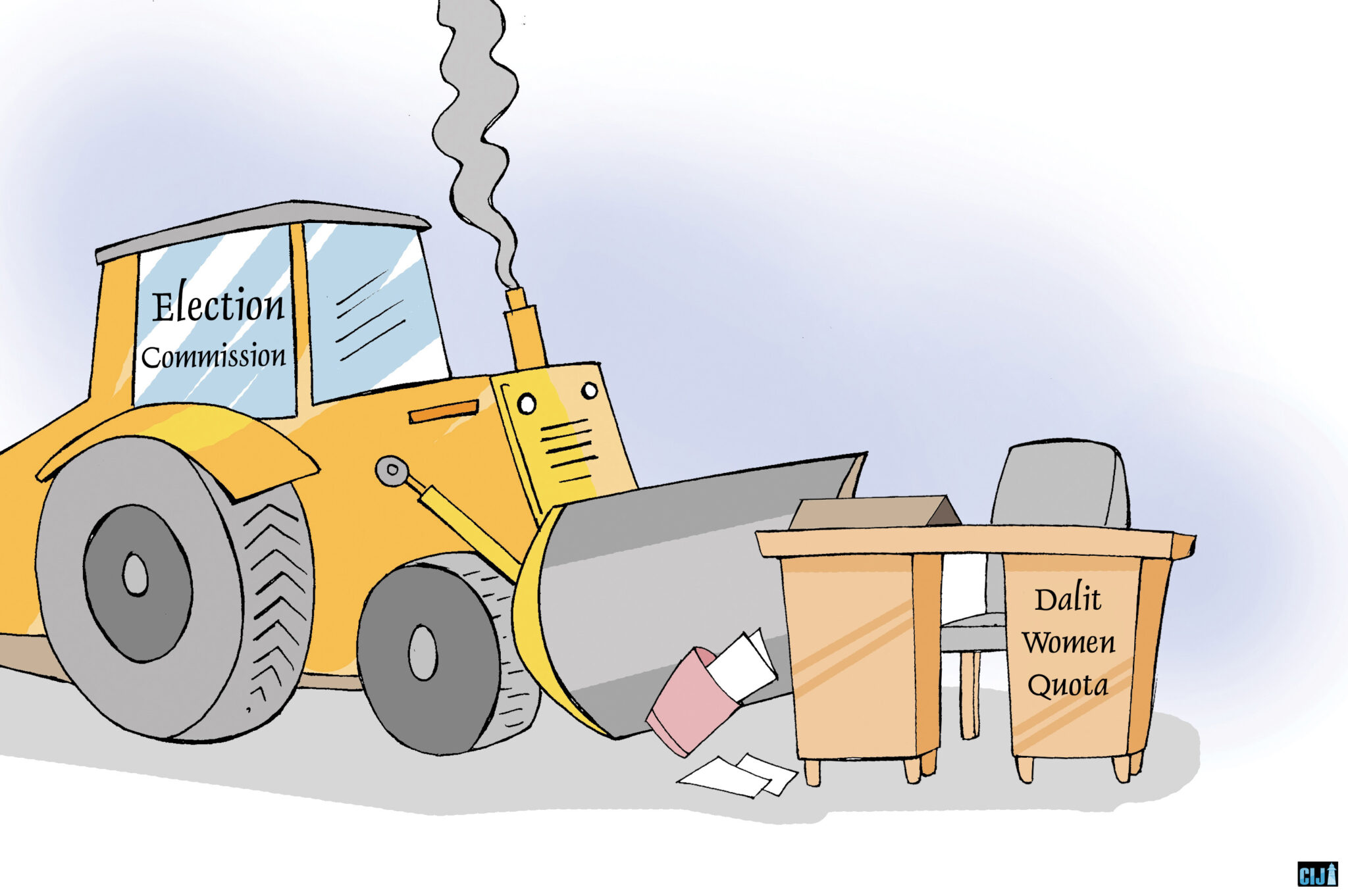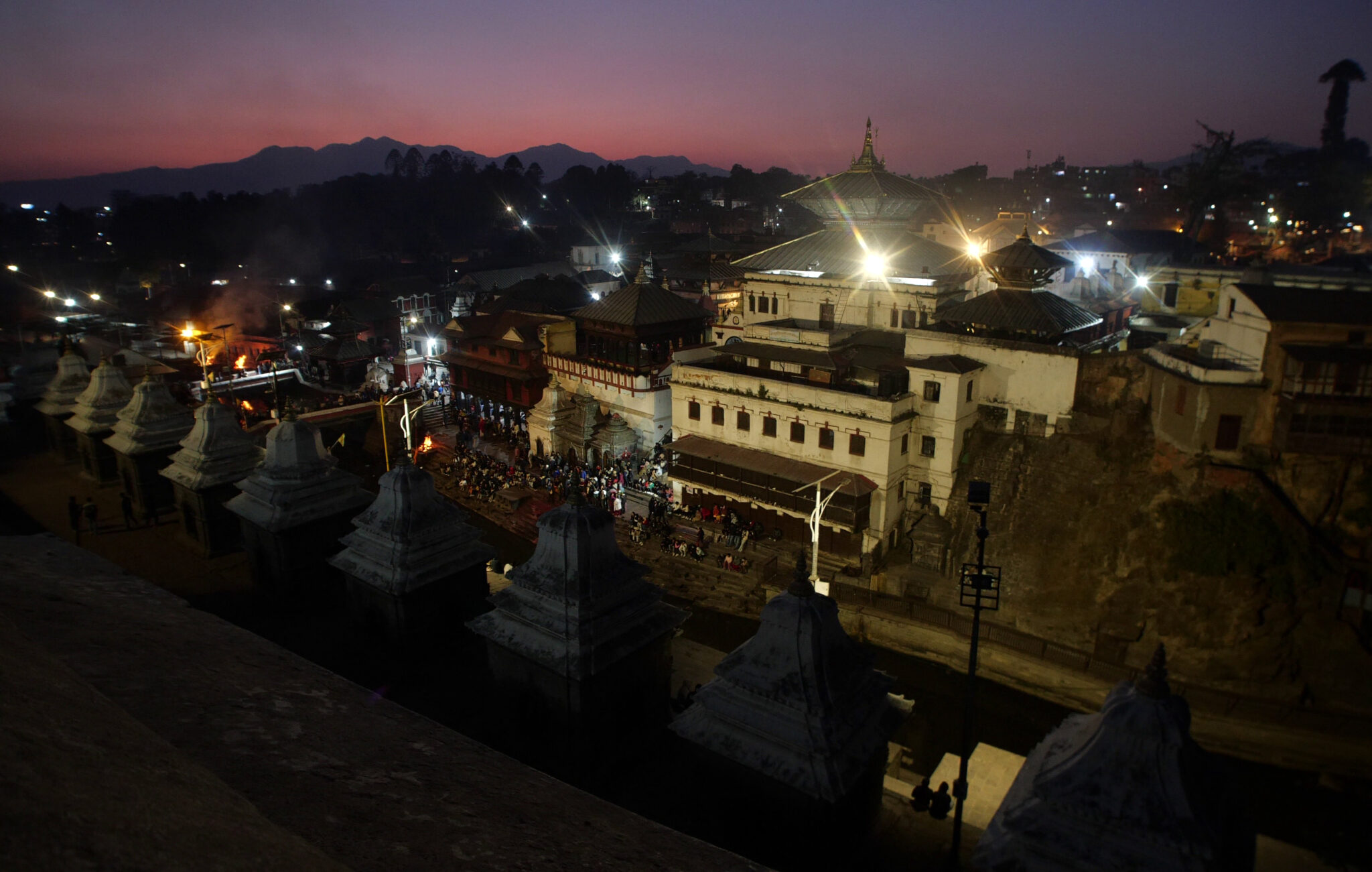Local-level representatives have mired in the culture of the greed of receiving bloated allowances, and perks – a gesture of political vanity. A bitter irony is that the country has never been worse governed. The Office of the Auditor-General has instructed the authorities concerned to payback the allowances and perks taken illegally.
Bharat Pandey: Centre for Investigative Journalism-Nepal
It may sound weird for many to know people’s representatives receiving clothing allowance in a democratic republic country like Nepal. However, local-level elected representatives at the Kathmandu Metropolitan City (KMC) are at it too, as they are found to be claiming clothing allowance proving that people’s representatives in the country are cut from the same cloth.

Mayor of Kathmandu Metropolitan City (KMC), Bidya Sundar Shakya and Deputy Mayor Hari Prabha Khadgi have been receiving clothing (dress) allowance every year. Majority of the KMC people’s representatives are not seen wearing the uniform. The KMC has a provision to wear white Daura-Surwal and gray coat for gents and green saree, blouse and gray coat for lady representatives. Photo: Kathmandu Metropolitan City.
Strange, but true, that a total of 162 people’s representatives, including KMC Mayor Bidya Sundar Shakya, Deputy Mayor Hari Prabha Khadgi, chairmen of 32 wards, 125 ward members, and 3 nominated members received ‘clothing allowance’ of Rs 12,000 each in the fiscal year 2017/18 – spending Rs 19 lakh 44 thousand from the state coffer, or say, from the tax-payers’ money.
Prabin Pyakurel, Chief of the Finance Department at the KMC admits to having disbursed ‘clothing’ allowance to people’s representatives. “While Mayor and Deputy Mayor received the allowance through the bank, others, including ward chiefs and members were given through their respective ward offices,” he conceded.
The amount meant for ‘clothing allowance’ was increased to Rs 25 lakh in the fiscal year 2018/2019 claiming that the budget for the same was inadequate in the previous fiscal year
Mayor Shakya, however, does not feel ill at ease to have received the undue allowance. He claims that almost all municipalities throughout the country receive the allowance since the dress code was intended to show a distinct identity of the people’s representatives.
Here, he has a counter-question: “When community and private schools provide dress/clothing allowance, why can’t a metropolitan city of a municipality?”
Rs 8.7 million for clothing allowance
All seven provinces have endorsed an Act ensuring that the local-level office bearers and members would be entitled to get facilities according to Article 227 of the Constitution.
Take for instance the case of Province 3. The Act formulated in 2075 has identified seven different facilities such as monthly facility, communication facility, daily travel allowance, per diem during foreign trips, travel insurance, bench, and committee allowance (legislature, accounts and good governance committees) to the office bearers and members of local-level governments. There has been no provision of such allowances, including the clothing/dress allowance as such. However, most of the local level elected representatives and office-bearers have been receiving from Rs 400,000 to Rs 25,00,000 in the name of clothing allowance.
Manthali municipality of Ramechhap is one such example where seventy-three elected representatives received Rs 7,500 each as ‘clothing allowance’ by introducing a ‘dress code’ for representatives on April 9, 2018. A total of Rs 550,000 was spent from the state coffer to provide dress for the elected representatives.
Citing short of budget, they increased the allowance by Rs 2,500 each to make it Rs 10,000 for each representative in the next fiscal year 2018/2019. This amounted to a total of Rs 722,700 annually. Administrative Officer at the municipality Tek Kumar Regmi has a convincing answer: “The provision of providing ‘clothing’ allowance has been made according to the decision of the municipality assembly.” He adds further, “We deposit the amount to the bank account of the respective people’s representatives.”

People’s representatives of Jitpur Simara Municipality of Bara at the first municipality assembly on November 16, 2018. They received a hefty amount of allowance in the name of conducting the municipality assembly.
Likewise, Dhakari village municipality assembly of Accham held on August 28-6 September 2017 decided to provide Rs 10,000 each to 44 elected representatives of the municipality as ‘clothing/ dress’ allowance. Interestingly, besides a shirt, coat, pants, and tie, male representatives also bought shoes and warm clothes. Likewise, women representatives did not lag in buying coat, saree, blouse, shoes and warm clothes.
Tek Bahadur Oli, Chief Administrative Officer of Dhakari village municipality says, “They (representatives) bought new clothes according to their choice. The village municipality disbursed the amount in a bulk.”
The Kirtipur Municipality disbursed Rs 641,000 as ‘clothing allowance’ for a total of 54 people’s representatives of the municipality in the last fiscal year. The municipality formed a task force under the leadership of Chief of Ward-2 Ramesh Man Dangol to recommend dress (uniform) for the representatives. The allowance was distributed to the representatives based on the decision of the task force.
“We recommended a blue Nepali dhaaka saree and a blouse for women and gray daura-suruwal and coat for male representatives,” Dangol informed adding further, “The representatives then tailored their dresses as per the task-force’s decision.”
According to the 56th report of the Auditor General, representatives of Mahalaxmi Municipality (Lalitpur) Baiteswor Village Municipality (Dolakha), Dhulikhel Municipality (Kavre), Triyuga Municipality (Udayapur), Purbachauki Village Municipality (Doti), Tikapur Municipality and Joshipur Village Municipality (Kailali), Purchaudi Municipality and Sigas Village Municipality of Baitadi, Tinpatan Village Municipality (Sindhuli), Gramthan Village Municipality (Morang), Ilam Municipality (Ilam), and Mathagadhi Village Municipality (Palpa) have received dress allowance by flouting the rule.
Dhanapalthan village municipality of Morang is, too, in the race. Thirty-nine representatives of this municipality received a total of Rs 234,000 as ‘dress allowance’. According to Lochan Prasad Dahal, Chief Administrative Office of the municipality, each representative received Rs 6,234 as allowance. “They (representatives) pressurize us to provide allowances and facilities claiming themselves of being local government,” he said.
477 days in a year
Local representatives are found to be claiming their full allowance despite not having attended a meeting – breach of the Article 4 (1) of the local-government Act, which clearly mentions that only members of a village or a municipality office bearers would be entitled to get the allowance according to his/her attendance in the meetings.
However, people’s representatives of Bara’s Jitpur Simara sub-metropolis received a total of Rs 1 crore 87 lakh 39 thousand as meeting allowance in the fiscal year 2017/2018.
This is an evidence of how attendance allowances are exploited by people’s representatives by taking dual allowances with most of them turning up in the morning to demand their allowance, then disappear for the rest of the day. These elected representatives drew an additional Rs 1 crore 54 lakh 57 thousand at the end of July as ‘advance’.
Deputy Mayor Dr. Krishna Prasad Poudel admits of receiving the dual allowance. “What has been assumed is not true. Only Rs 18 lakh has been used for what has been dubbed as a dual allowance, not the entire amount.”
He defended the act saying that it all happened as the provincial government failed to come up with a law. “However, the Office of the Auditor-General has initiated the process of reimbursing the amount as there have been arrears.”
Several representatives had received undue facilities before the formulation of the law. For instance, a total of Rs 58,98,975 was spent for allowance received by the representatives of Birgunj Metropolitan City, Parsa, in 10 installments in a month between June 7, 2018 – July 1, 2018, a fortnight (July 16, 2018) before the provincial assembly endorsed the Act related to the facilities for local-level representatives.
The allowance was taken what has been said from the ‘harmonization grant’ provided by the federal government, which was primarily meant for development works. The amount also included Rs 3.847 million for the meeting of office bearers and Rs 715,000 for the municipality assembly meeting.
Evidence shows that the representatives have received extra allowances by convening meetings of the infrastructure development committee, cleanliness committee, public service capacity committee, social development committee, bill committee, among others, sometimes more than two meetings a day. The total number of meetings total to 477 this year.
Article 4 (1) of the local level of Pradesh 5 Act says only members of the village or municipality bearers would be entitled to get the allowances as per his/her participation in the village, executive committee, ward committee, or municipality meetings.
However, Mayor of Butwal sub-metropolitan city Shiva Raj Subedi and Deputy Mayor Guma Devi Acharya, and other elected representatives of ward-19 have received a total of Rs 4.1 million in the name of ward committee meeting allowance.
Consider what Subedi has to say: “How can people’s representatives work without allowance? We can’t attend around 38 meetings of the ward committee without allowances.” He adds, “We are all set to request Provincial Assembly through the Municipal Assembly for the allowances.”
Similarly, representatives of Birendranagar Municipality, Surkhet received a total of Rs 1 crore 5 lakh 95 thousand 888 as meeting allowance before the provincial assembly formulated and endorsed the law, which according to Assistant Auditor General Bishnu Prasad Rijal, Office of Auditor General, is illegitimate. “Receiving allowance without its endorsement from the provincial assembly terms is unlawful,” he said.
However, people’s representatives seem to be least bothered about the allowance that they have taken illegitimately as they are quick to push agendas that benefit them. The elected representatives continue to award themselves hefty perks and allowance when ordinary people have been waiting for the government’s slogan of “Singha Durbar to people’s doorsteps”.
Such a tendency has been a blatant disregard of the provincial law that proves the lengths that these elected representatives are working to serve their interests.
For instance, the representatives of Raksirang village municipality of Makawanpur received a total of Rs 10 lakh 5 thousand as meeting allowance in the fiscal year 2017/2018. Ridiculously it might seem, the meetings were held to decide the Dashain-Tihar greetings, deciding the dates for monthly meetings, monitoring the plans, among others.
Representatives of Manthali village Municipality of Ramechhap received a total of Rs 70 thousand as meeting allowance. Their meetings decided to ‘hold meetings’ again at an appropriate date, provide motor-cycle insurance, among other negligible issues.
Elected representatives of Rainadevi village municipality of Palpa too are no lesser than representatives of Manthali village municipality. They spent Rs 6 lakh 10 thousand by organizing a meeting to discuss the operation of projects and spending Rs 96 thousand as meeting allowance to discuss the purchase of four-wheelers and motorcycles.
Interestingly, members of the disaster management directorate, urban education and social committee of the Mahalaxmi Municipality of Lalitpur received a total of Rs 2 lakh 30 thousand as an allowance, an unlawful act.
According to the Act of Province 3 concerning the allowances, only the members of the judicial, legislative, accounting and good governance can receive the allowance. An executive member of the local level is entitled to receive an allowance of only three meetings in a month while a ward member is entitled to get an allowance of only two meetings a month. Similarly, a member of the thematic committee is entitled to receive an allowance of one meeting in a month and a member of the judicial committee is entitled to get an allowance of two meetings in a month. However, ward chief and executive members of the Jadaha village municipality of Morang have received Rs 12 lakh 88 thousand as an allowance in the name of conducting 30 meetings in a month.
According to the 56th Annual Report 2075 of the Auditor General, elected people’s representatives across the country have illegitimately received a total of Rs 49 crore 75 lakh 59 thousand as undue meeting allowance. Likewise, they have received more than Rs 1 crore 5 lakh as a festival allowance, and Rs 87 lakh 46 thousand as clothing (dress) allowance.
For example, the elected representatives of Manthali Municipality, Ramechhap received Rs 688,000 as Dashain expenditure/allowance in the fiscal year 2017/2018. This is not an exceptional case. Representatives of Putha Uttarganga Village Municipality of Rukum East received a total of Rs 700,000. Likewise, representatives of Sisne Village Municipality received Rs 473,000 in the name of festival expenditure.
Twenty-nine representatives of Silichong Village Municipality of Sankhuwasabha received Rs 5 thousand each totaling to Rs 145,000 as Dashain allowance in the same fiscal year.
Office bearers and representatives receiving allowances in the name of festivals include Shivanath Village Municipality of Baitadi (Rs 323,000), Bardagoriya Village Municipality of Kailali (Rs 323,000), Joshipur Village Municipality of Baitadi (Rs 286,000), Purbichauki Village Municipality of Doti (Rs 480,000), Thulibheri Village Municipality of Dolpa (Rs 220,000), and Guransh Village Municipality of Dailekh (Rs 207,000). The list goes on.
Blatant misuse of funds in the name of facilities
Ramesh Kumari Jimi, Mayor of Dharmadevi Municipality, Sankhuwasabha and Deputy Mayor Shobha Ghimire received facilities in the name of motorcycle, scooter, laptop, desktop computer, house rent and mobile phone.

Source: 56th Annual Report of the Office of the Auditor General, 2075
They received a total of Rs 477,20,00 in the name of facilities even before the Provincial Assembly formulated the law about the facilities for the people’s representatives. Mayor Jimi purchased a motorcycle (Ko 31 Pa 2869), a desktop computer worth Rs 55 thousand 929, a laptop worth Rs 74,115, a Samsung mobile phone worth Rs 23,224, and received Rs 1 lakh 86 thousand as annual house rent.
Likewise, deputy mayor Ghimire has received a scooter with registration number Ko 26 Pa 5047, a desktop computer worth Rs 55,929, a laptop worth Rs 79,200, a mobile phone worth Rs 20,973, and Rs 5,500 as monthly house rent.
The village municipality has a Mahindra Bolero jeep and a Mitsubishi jeep provided by the Federal Health Ministry.
Likewise, office bearers of Makalu village municipality of Sankhuwasabha have received a total of Rs 883,796 to purchase motorcycles, mobile phone sets, and television sets for the office-bearers.
Chairperson of Jadaha village municipality of Morang, Kailash Prasad Mandal, vice-chairperson Shalo Sah and ward members have used up a total of Rs 561,745 to purchase 23 sets of expensive mobile phones.
Representatives of Sunkoshi village municipality, Okhaldhunga have used up a total of Rs 14,403,32 as facilities. Likewise, elected representatives of Molung and Chisamkhugadi village municipalities of the district have spent Rs 21 lakh and 17,28,370 respectively in the name of daily travel allowance and monitoring expenditure.
Mayors drain out Rs 243,000 to buy mobile sets

Chief of Gaushala Municipality of Mahottari, Shivanath Mahato has bought mobile phones (an ‘Apple S10’ mobile phone and a Samsung ‘G 995 F’) worth Rs 2 lakh as ‘facility’.
Mayors who have received allowances to purchase mobile sets include Mayors of Madhavnarayan of Rautahat (Rs 960,000), Bishnupura of Saptari (Rs 229,000), Rajgadh (Rs 259,000), Rajbiraj (Rs 466,000), Dankeswori (Rs 75,000), Bisrampur of Bara (Rs 172,000), Mahagadhimai Municipality (Rs 230,000), and Gaushala of Mahottari (Rs 220,000). Almost all 51 peoples’ representatives have purchased mobile phone sets.
Shivanath Mahato, Mayor of Gaushala Municipality of Mahattari bought an ‘Apple S10’ worth Rs 143,000, and a ‘Samsung G 995F’ worth Rs 87 thousand.
Says Mahato, “The Chief Administrative Office handed over mobile sets to me and deputy mayors. I have, however, returned the Apple phone set to the municipality.”
The Biratnagar Metropolitan City has allocated an additional amount of Rs 17,64,000 to people’s representatives as monthly facilities.
Similarly, people’s representatives of Ribdikot, Beganaskali and Purwakhola Village Municipalities of Palpa; Raksirang Village Municipality of Makawanpur; Swamikartik Khapar Village Municipality of Bajura; Amargadhi Village Municipality of Dadeldhura; and Bideha Village Municipality of Dhanusha have received undue facilities in the name of additional facilities.
According to the 56th Report of the Auditor General, representatives of 201 local levels have abused/misused Rs 22 crore 37 lakh 30 thousand from the state coffer.
Cumulating anomalies
The anomalies that were prevalent in the past during the centralized governance system of Singha Durbar has now shifted to local levels. Former Secretary Khem Raj Nepal feels that the tendency of receiving undue allowance arbitrarily in the erstwhile system of governance has shifted at the local levels.
“The central government is to be blamed for this. If the high-level authorities reformed themselves, local levels will automatically correct themselves,” adding, “They (wrongdoers) will be discouraged to continue such practice if the question of ethics is raised.”
Assistant Auditor General Bishnu Prasad Rijal rules out any possibilities of bringing them to the right track as the concerned authorities have failed to rein in these elected representatives even though the Auditor General’s Office has termed the tendency of taking allowance as illegal.
“Since there is no law or a specific provision of taking action against the representatives failing to reimburse the arrears, the only way out is either the local levels need to take the initiatives to correct such anomalies, or the parliamentary Public Account Committee (PAC) needs to look after this,” he adds.
Local-level people’s representatives, however, have their claim. They argue that they are compelled to take undue facilities since they do not have the facilities as compared with the representatives of the federal and provincial levels.
“Writing on a piece of paper is not the solution,” said Hom Narayan Shrestha, Chairperson of the National Association of Rural Municipality, adding, “If the federal and provinces (which formulate the laws) get double facilities, what bars us from doing so?” Such a tendency is bias,” he said.
Former Acting Auditor General Sukdev Khatri is of the view that such anomalies will gradually minimize if a law that would curtail the facilities of the President, Prime Minister, and the lawmakers, is formulated.
“Thirty-six thousand representatives of the local level can be put to place if the tendency of becoming contractors by taking budget in the name of development at the higher level is stopped,” he said.



